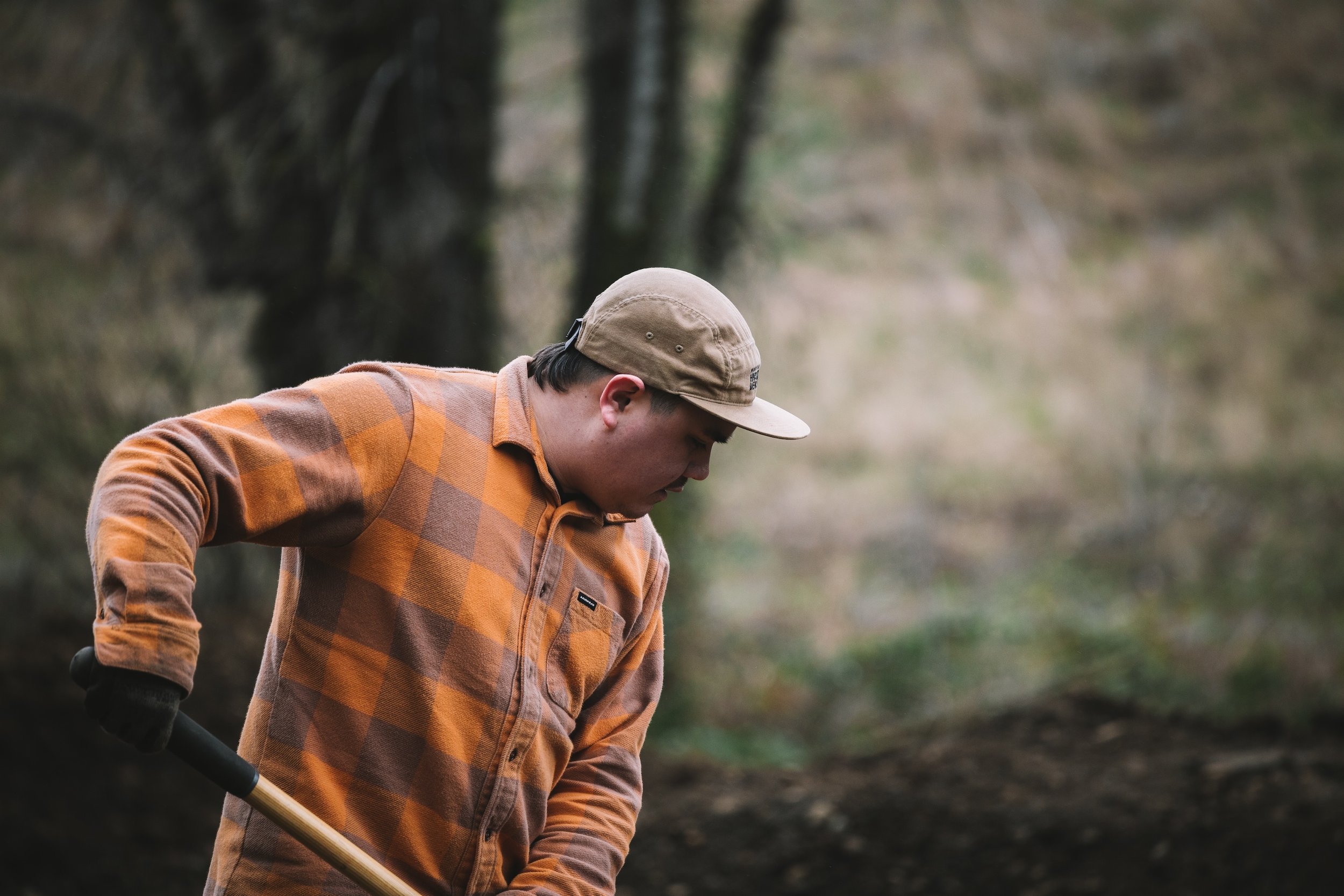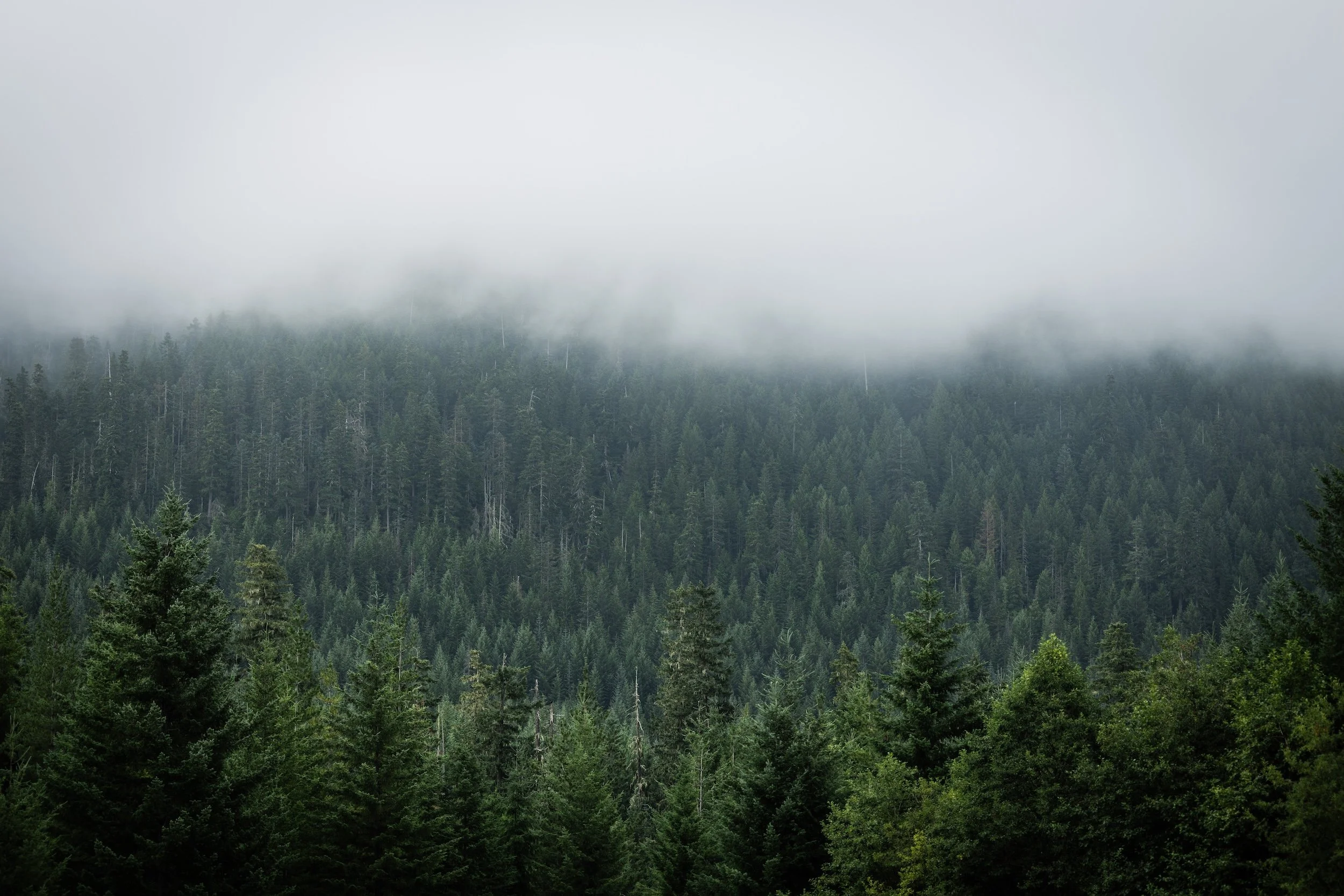
Unsanctioned: Building the Trails That Didn’t Exist
Unsanctioned trail building is rarely about defiance. More often, it is about absence.
Across the Unsanctioned series, Trail Builder Magazine has documented a recurring pattern: riders recognize a gap in their community, and instead of waiting years for process, permission, and paperwork, they quietly pick up tools and start shaping dirt. Not because they reject stewardship, but because something meaningful is missing.
This story comes from a small, resource-based community in western Canada. For years, there were no mountain bike–specific trails, no bike association, and no visible pathway for legal trail development. What followed was not protest, but persistence.
Unsanctioned: A Series About Rogue Trail Builders - Part 4: East Africa
In a forested region in East Africa, a small group of mountain bikers is quietly building trails. There are no press releases, no grants, no signage. Just machetes, shovels, and a deep respect for the land and the communities who live alongside it. In this installment of our Unsanctioned series, we spoke with one of the builders behind these efforts. What follows is a rare window into what it means to build trails when the rules are unclear, the forest is contested, and success isn’t measured in Strava segments but in schoolchildren crossing muddy paths and reforestation crews finding safe passage.
Do Unsanctioned Trails Hurt Mountain Biking?
Rogue trails are everywhere: hidden behind neighborhoods, winding through forest hillsides, and quietly passed from rider to rider. But what’s the cost? This article explores the world of unsanctioned trail building—why they exist, who builds them, the risks to access and ecosystems, and how we might bridge the gap between rebellion and responsibility.
Unsanctioned: A Series About Rogue Trail Builders - Part 3: Netherlands
I recently caught up with the president of a non-profit trail stewardship organization as we talked about their plans for the upcoming year. One of their goals? Work to officially adopt a beloved unsanctioned trail system that is on federal land. When he first shared that with me, my first thought was not only about this interview series with rogue trail builders but also about why and how conversations like this may encourage more unsanctioned trails. Why?
Unsanctioned: A Series About Rogue Trail Builders - Part 1: Italy
There's a saying about unsanctioned trails: they exist because of unmet demands or needs. I feel the same way about social media and willingly giving a voice to "rogue" trail builders. Why is that?
I've had numerous conversations with non-profit trail stewarship leaders who are almost exasperated by getting blasted on social media by rogue builders. Often, the pushback is due to lengthy bureaucracy and rules regarding building and maintaining trails. This causes much frustration for builders who want trails NOW, not ten years later.
As you can imagine, both sides are frustrated, even angry, and can sometimes be verbally hostile. When that happens, all communication lines are severed. Trail stewardship organizations go their way while the rogue builder quietly picks up a McLeod and slips unnoticed into the forest to begin digging a new––and unsanctioned trail.
Introducing a New Series on Unsanctioned Trails
Unsanctioned trails. Those two words combined can cause a firestorm of emotion, debate, and consternation. That’s why I am launching a new series to explore this topic …
Why explore this topic? Some argue that unsanctioned trails represent a shady and dubious past from which we’re finally breaking away. For some, there’s a level of shame to talk about what took place “back then.” While that is the origin story of mountain biking, many are quick to push it aside and talk about how or why we’ve moved on. Yet, others are tired of the bureaucracy and tortoise-like pace of building “legal” trails. I told you this is a controversial conversation. However, we need to have these difficult conversations.






